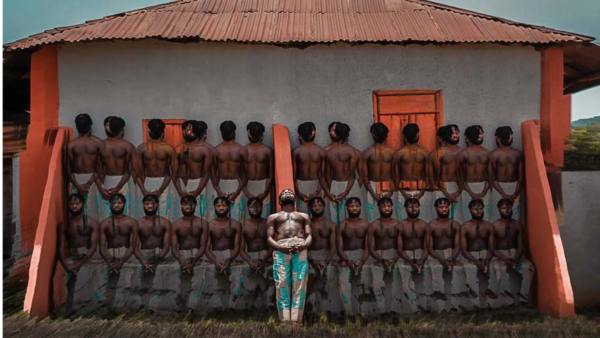
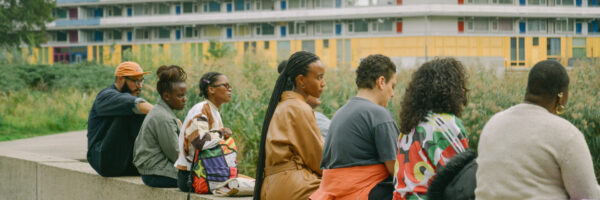
Looking back at Lab week Building Beyond in the Netherlands
From 9 to 14 October 2023, the twelve participants and four mentors of the second cycle of the Building Beyond mentorship programme gathered in the Netherlands for the second Lab Week. The programme participants work in a range of design fields including architecture, urbanism, digital design, visual arts, photography and performance and hail from different African cities. The lab week, themed Reimagining the Future of Cities, included a series of workshops, a networking dinner, studio visits and a public symposium. Roxanne da Graça, Internationalization grant officer, reflects on the week.
collaboration and connection
The Building Beyond mentorship programme is a unique collaboration between the Creative Industries Fund NL and the Prins Claus Fund that focuses on promoting and facilitating open dialogue, collaboration and connection, as well as supporting the participants’ individual practices. The programme also facilitates space for reflection and exchange between creative practitioners from different cities within the African continent and in the Netherlands.
The twelve participants in the second cycle of the programme are based in different countries, including Egypt, Libya, Nigeria, Kenya, Benin, Ethiopia, Tanzania, Mozambique and South Africa. Through creativity and critical thinking, they address a number of interrelated social and urban dynamics, including the visibility and participation of local communities, the design of public spaces, (de)colonization of architecture and social inclusive justice.
Find the biographies of all the participants and mentors here.
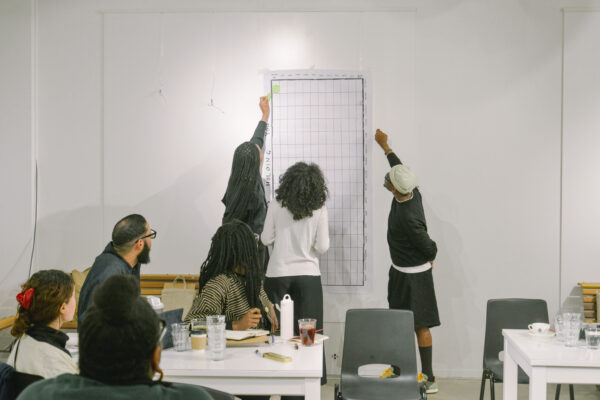
Bijlmer neighbourhood
On Monday morning, the lab week kicked off at the Open Space Contemporary Art Museum (OSCAM) in the Bijlmer neighbourhood of Amsterdam. The group started with a grounding session led by Wezile Harmans, one of the participants in the Building Beyond programme. In the afternoon, urbanist and founder of Bijlmer Believers 3.0, Wouter Pocornie, guided the group on a walking tour, during which he explained the historical and contemporary context of various places within Bijlmer neighbourhood in relation to the city.
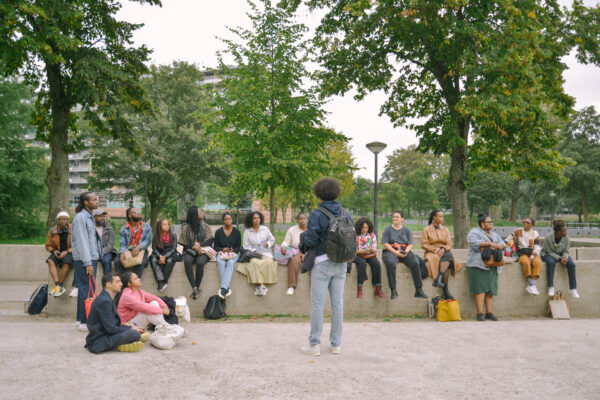
slow research
On Tuesday, programme participant Jepkorir Rose led an interactive poetic session, reflecting on the results from the earlier grounding session by Wezile Harmans, at Museum het Schip, the Amsterdam School Museum focused on art, architecture and housing. This was followed by a visit to designer Maria Blaisse’s studio, where she and the director of Slow Research Lab, Carolyn F. Strauss, facilitated a session on spatial practice and reflected on the power of ‘slow research’ as a methodology.
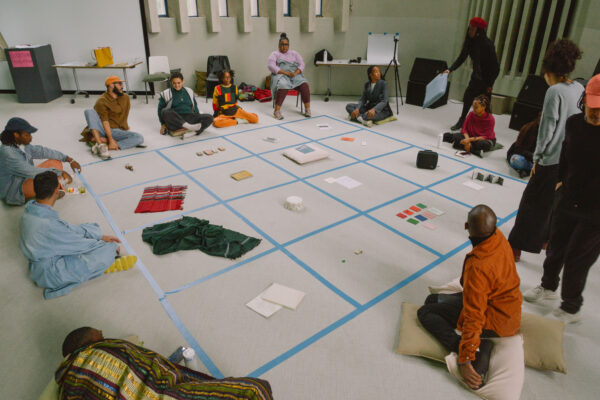
counter-mapping
The group spent their third developing their joint publication at de Tempel, a cultural space in Amsterdam that focuses on culture, creativity and experimentation. Participants Mika’il and Uzoma provided a ‘counter-mapping’ exercise. This is a method that deploys alternative ways of mapping places, developments and ideas to question dominant power structures and in order to advance progressive goals. Later in the day, the group built a collective toolbox as a basis for the joint publication.
urban research
On Thursday, the group visited the Independent School for the City in Rotterdam, where director Mike Emmerik shared the School’s approach to bringing together critical and experimental ideas in the fields of urban research, design, strategy and activism through a variety of activities. The school also provides a platform for urban professionals to engage in informal discussions on the challenges of fast-growing cities. Following this, architectural historian Michelle Provoost reflected on the research for the publication To Build an African City. The book offers an alternative approach for planners, developers and other decision-makers with the aim of building more inclusive and sustainable New Towns in African cities.
On Friday, the group visited Studio Ossidiana in Rotterdam, a design studio that develops work at the intersection of architecture, design and landscape. Founders Alessandra Covini and Giovanni Bellotti presented a number of projects the studio has developed and reflected on their working methods and international collaborations with different organizations. The afternoon included a visit to the cultural production studio Cookies in Schiedam, where a conversation took place on the role of architecture and digital culture in fostering more healthy cultural ecosystems.


Beyond Prescribed Future
The final day of the lab week was centred on the public event Reimagining Future African Cities at Nieuwe Instituut. The twelve participants and four mentors provided four inspiring and informative panel sessions on the African anthropocene, vernacular technology, cities of resonance and the imaginary and image. It was a thought-provoking day with a symposium and workshop jointly presented by Nieuw Instituut, the Prince Claus Fund, Creative Industries Fund NL and African Architecture Matters.
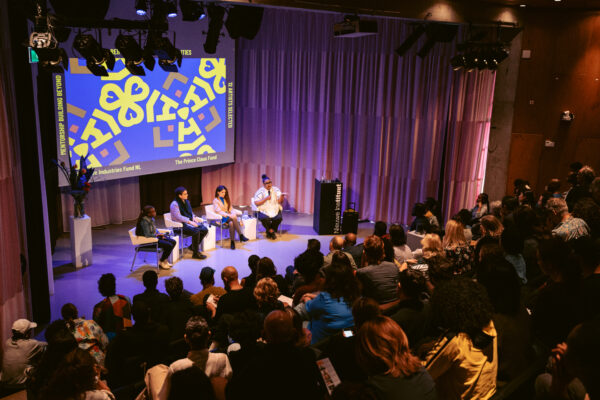
Photos Sankrit, Maud Fernhout and Floor Besuijen






